 |
The Slow Economy — A Real and Natural Economic Model |
|
Since her inauguration as County Magistrate in late 2018, April Yao has continued to promote her Slow Economy,referring to it as “a real and natural economic model.”It encompasses not only her forward-thinking circular economics but also social and environmental elements to answer and to tackle issues affecting the international community at the county government level.
 Yao and her government team have used the United Nations SDGs and the Charter document of the Alliance of Healthy Decisions (AFHC) to help direct policy decisions to keep in line with international trends. The Slow Economy’s economic core is a circular economy. It is an economy driven by capital created through sustainable practices. This is a stark contrast to how traditional linear economies operate. Taitung's economic direction and mentality is in favor of supporting local sustainable industries of agriculture and tourism over the traditional take, make, and dispose culture of yesteryear. 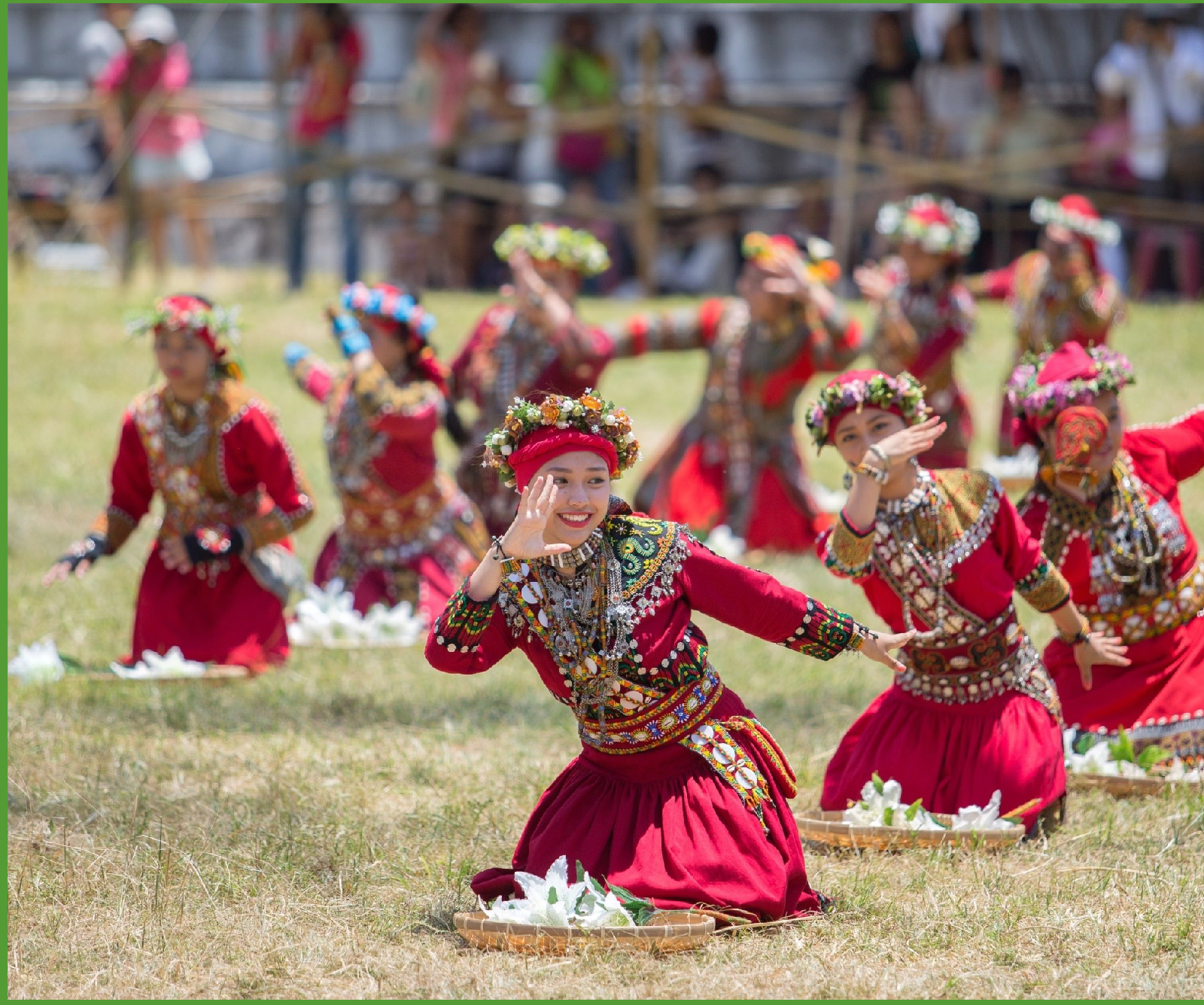 For example, taking advantage of Taitung’s plethora of aboriginal culture, the TGC has provided training and resources to enable local tribes to refine their culinary and storytelling techniques, thereby creating experiences involving local products and culture resulting in revenue, sustainably. TGC has also begun opening English training programs to expand the overall potential pool of clientele and increase revenue flow to vendors across Taitung. By providing accessibility to Taitung's exclusives—abundant agriculture, breath-taking natural beauty, authentic and rich indigenous culture—to both Chinese and English speakers alike, it creates a natural vetting process, enticing only those who have a deep desire to know this place more intimately. From there, with a sense of belongingness, interested patrons will hopefully make subsequent visits further reinforcing the sustainable nature of Taitung’s Slow Economy while also doubly retaining Taitung's unique identity.  In the eyes of our Magistrate, each visitor isn’t just a one-off interaction—where they come and they go—but as a friend; one that periodically comes back to check-in and to see what’s happening. Hence, one of Yao’s favorite campaign slogans is 一萬人來一百次, or, ten-thousand people visit (Taitung) one hundred times. One can see the emphasis, care, and perceived social and economic impact of each and every visitor to Taitung. The social impacts of the Slow Economy are also widespread and affect many aspects of life in the county. Taitung, as well as the rest of Taiwan and developed nations, are challenged by a waning and stagnating birth rate, leading to aged societies. Consequently, elders are becoming more proportionally significant, and with it, all the associated medical complications and risks with old age. 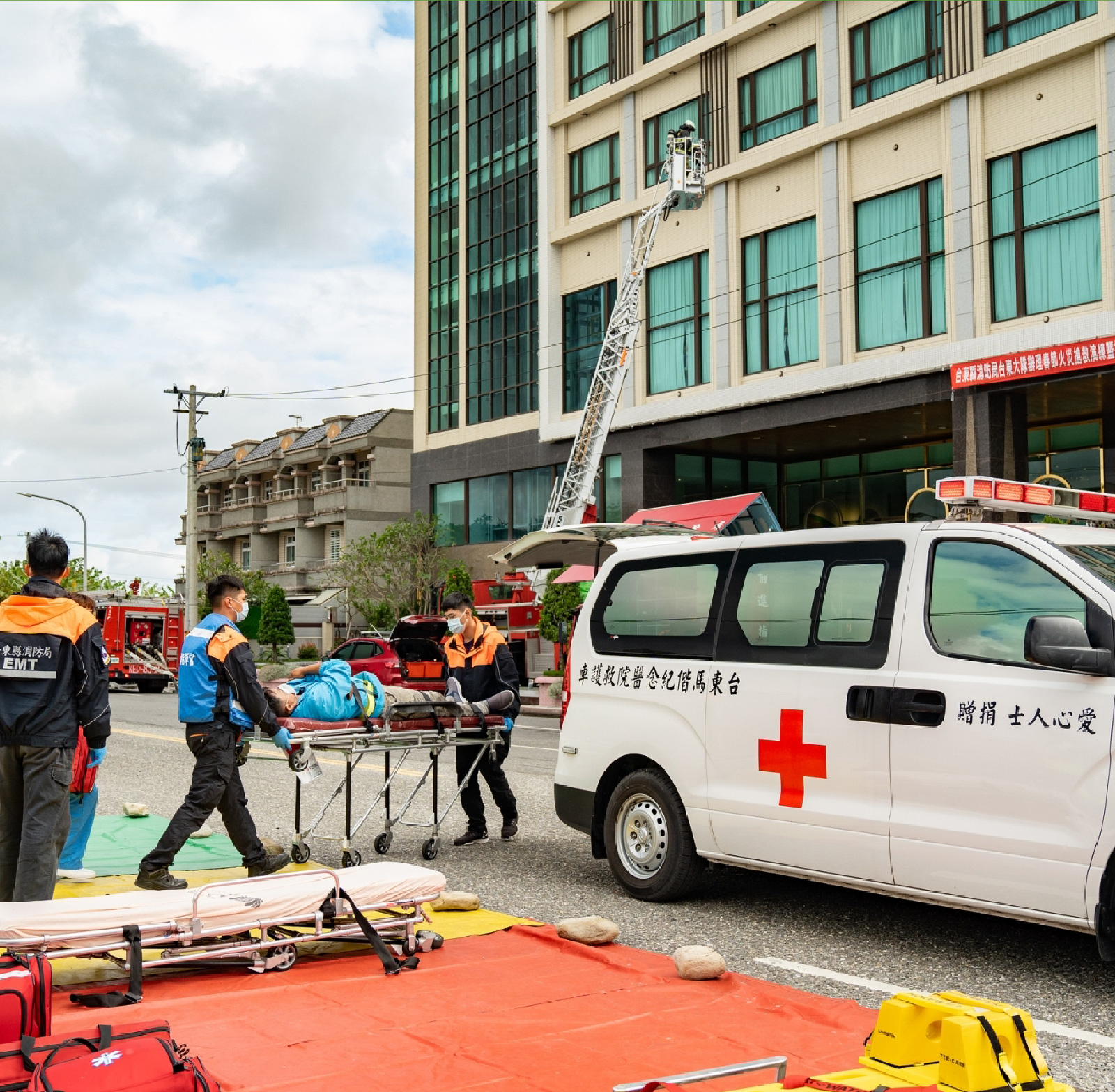 Perhaps the single most impactful smart city technology introduced to the county, 5G, has enabled the county’s emergency services to provide telehealth services to residents, and most importantly, seniors. Given Taitung’s unique long shape, emergency personnel have long struggled to answer emergency calls in remote locations in a timely manner. Thanks in part to this new infrastructure, the county’s prehospital life support rate had reached 33.8% in 2022, when it was only a mere 6% in 2006. Perhaps the single most impactful smart city technology introduced to the county, 5G, has enabled the county’s emergency services to provide telehealth services to residents, and most importantly, seniors. Given Taitung’s unique long shape, emergency personnel have long struggled to answer emergency calls in remote locations in a timely manner. Thanks in part to this new infrastructure, the county’s prehospital life support rate had reached 33.8% in 2022, when it was only a mere 6% in 2006.  The Slow Food Festival (SFF) also exemplifies The Slow Economy’s effect on our country's sustainable future. As bans of single-use plastics are now ubiquitous across the world, reusable containers are hoped to take their stead; SFF prescribes to the notion of good food, clean food, and fair food. In practice, this means participating venders produce “good food” with locally sourced ingredients. Customers consume “clean food” by only using reusable containers. “Fair food” is made by setting reasonable prices for the service and product, resulting in amicable business transactions. This creates the perfect amalgamation of The Slow Economy’s components. No one example of The Slow Economy is rigid to only one of its three core aspects—economic, social, or environmental—but rather there is an organic overlap. While the abstract and abstruse nature of The Slow Economy can be hard to define, its omnipresence in all facets of life in Taitung provides direction for Yao and her team to keep pushing Taitung and its people into the future. It is for this exact reason, over the course of this year, the Taitung Times will become a platform to host a series of short essays exploring Taitung’s Slow Economy in-depth. The hope is to shed light on the current thinking of local government policy and decision making. For those who may share a connection with Taitung, a vested interest in one of its industries, or simply here of your own curiosity and volition, we hope you enjoy this upcoming year of Taitung Times essays! █ |
Food Changes Us |
|
The movement known as Slow Food began as an Italian grassroots movement during a demonstration to protest the construction of a McDonalds at the Spanish Steps in Rome. Since its inception in 1986, over 160 countries have been involved with the movement and adopted its philosophy of “a world in which all people can access and enjoy food that is good for them, good for those who grow it and good for the planet.”
Slow Food stands on three founding principles: good, clean, and fair. Good describes quality, flavorsome and healthy foods. Clean denotes food production is sustainable. Fair is defined as providing fair prices for consumers and fair conditions for food vendors. 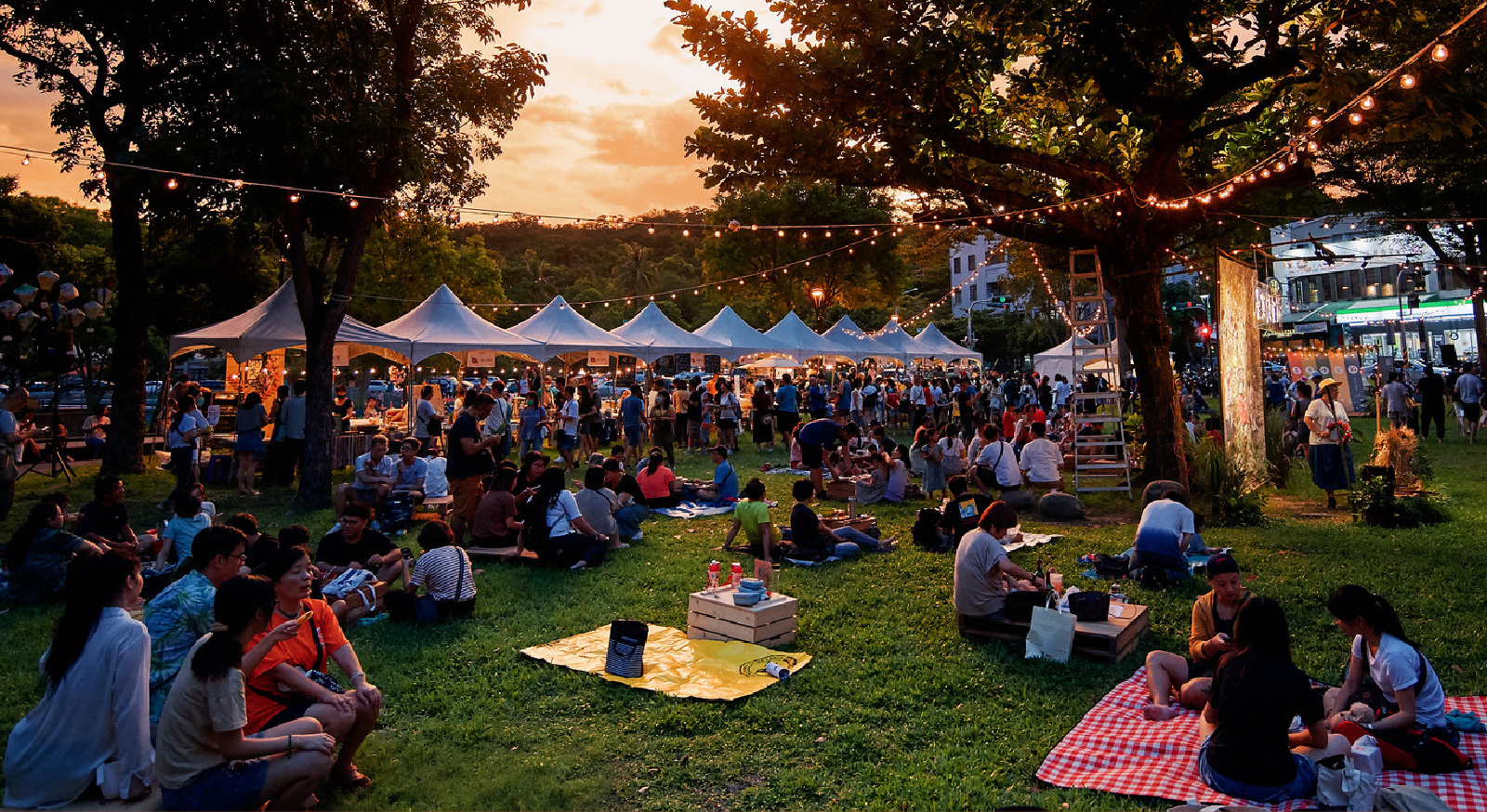 Started as the so-called From Farm to Table Project in 2012, The Slow Food Festival originally was intended to increase the visibility and internationalization of Taitung County; now it has evolved to become a staple and icon of Taitung County and has been annually held since 2017. In practice, the festival acts as a catalyst to promote sustainable eating habits, community building, as well as creating commercial opportunities for local restaurant owners. As the world pushes out single-use plastics, and uses marginally better recycled-disposable-containers, when we eat, the end result is still the same—waste. A half-baked approach won’t cut it. We need zero-waste. Enter reusable containers. 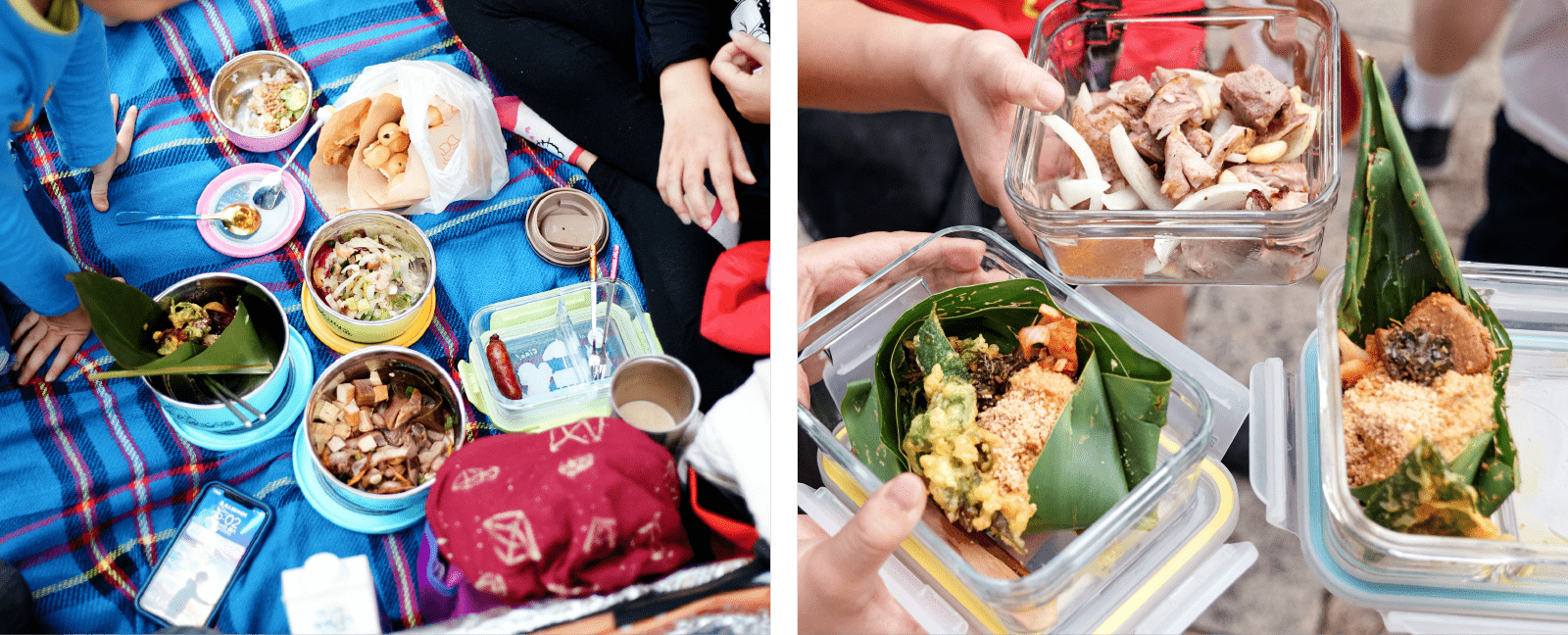 On the day of the festival, no stands prepare single-use containers or cutlery. The hope is that by emulating the right frame of mind—even just for an afternoon—will encourage the public to make the switch from single-use to reusable. This creates an eating “cycle” where zero waste is produced, effectively satisfying one of the three core pillars of the Slow Economy. Regarding its social and economic pillars, the Slow Food Festival meets the guidelines set forth by Slow Economy. Business is done, small talk is talked, and money is exchanged for food and its preparation, effectively stimulating social and commercial interactions—using only locally sourced ingredients and talent to do so. This is important to note in that if food was prepared not locally, it would be in fact contradictory to the sustainable and eco-friendly nature the Slow Economy adheres to. The unpleasant truth is the pollutants released into the air by the transportation of goods, including that of food, has a cataclysmic impact on our environment. The name of the game is, ideally, zero waste; waste either being defined as the byproduct of transportation like greenhouse gasses, or, in the literal sense, garbage. And if not for zero waste, waste reduction. This is why the whole world is seeing a push for local. It not only supports the folk back home, but it also limits humanities’ total waste output. Hence, the importance and attention given to the use of local food. 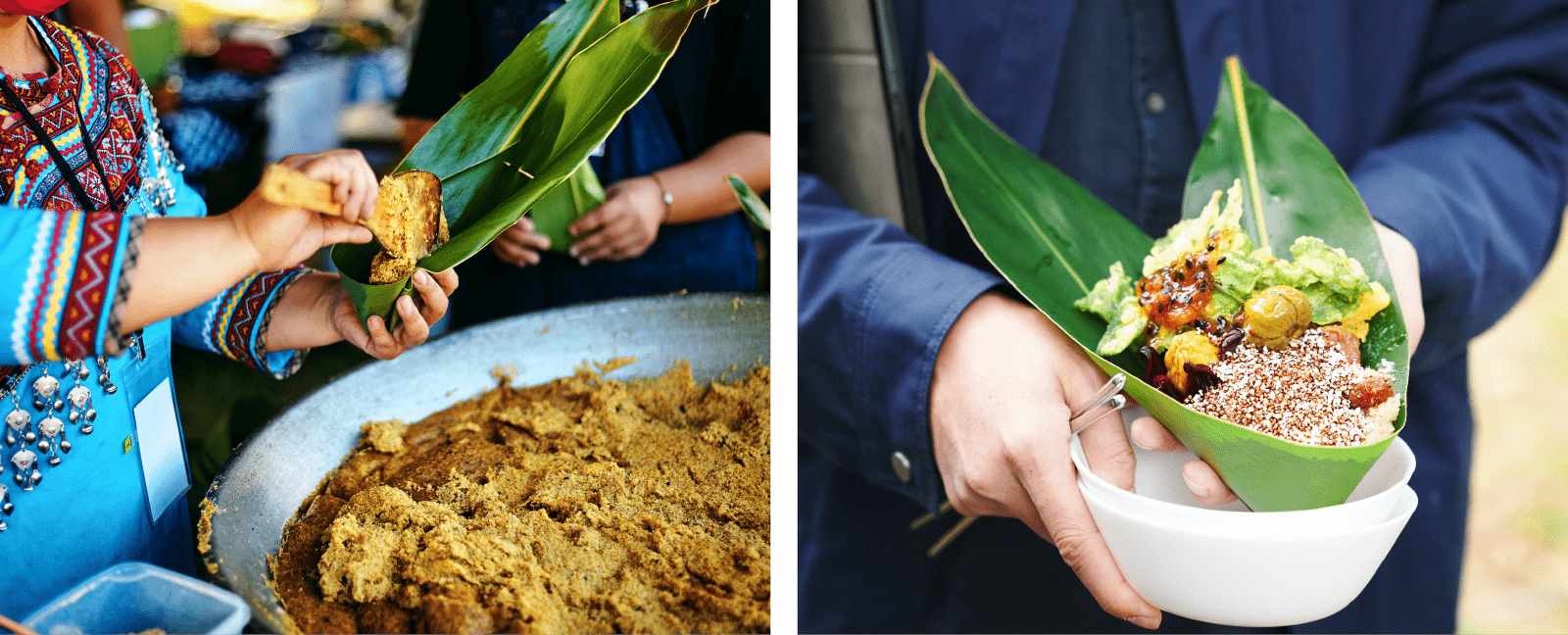 Early on, stands would wrap their food products with hardy banana and shell ginger leaves for their patrons. Overtime, however, this wrapping practice was thought to be unsustainable as it would lead to over harvesting the leaves thereby destroying local ecology. Perhaps, though, this was a necessary step for repeat patrons to understand and adopt a waste-less attitude during future Slow Food Festivals. The 2019 Slow Food Festival, in which over 3,300 participated, resulted in a mere 2 large bags of trash. Local news reported trash pickup didn’t want to come by because so little trash. A decade later since its introduction, over 14 Slow Food Festivals have been enjoyed by 55,000 people, Taitung now sits with elevated visibility on the international stage. Taitung’s Slow Food Festival was awarded the Good Design Gold Award for Regional Activity by the Japan Institute of Design Promotion in October of 2021. Two months later, in December, marked the first time Taitung’s Slow Food Festival was held outside county borders, with a Slow Food Festival being held in Taipei. Early on, stands would wrap their food products with hardy banana and shell ginger leaves for their patrons. Overtime, however, this wrapping practice was thought to be unsustainable as it would lead to over harvesting the leaves thereby destroying local ecology. Perhaps, though, this was a necessary step for repeat patrons to understand and adopt a waste-less attitude during future Slow Food Festivals. The 2019 Slow Food Festival, in which over 3,300 participated, resulted in a mere 2 large bags of trash. Local news reported trash pickup didn’t want to come by because so little trash. A decade later since its introduction, over 14 Slow Food Festivals have been enjoyed by 55,000 people, Taitung now sits with elevated visibility on the international stage. Taitung’s Slow Food Festival was awarded the Good Design Gold Award for Regional Activity by the Japan Institute of Design Promotion in October of 2021. Two months later, in December, marked the first time Taitung’s Slow Food Festival was held outside county borders, with a Slow Food Festival being held in Taipei. 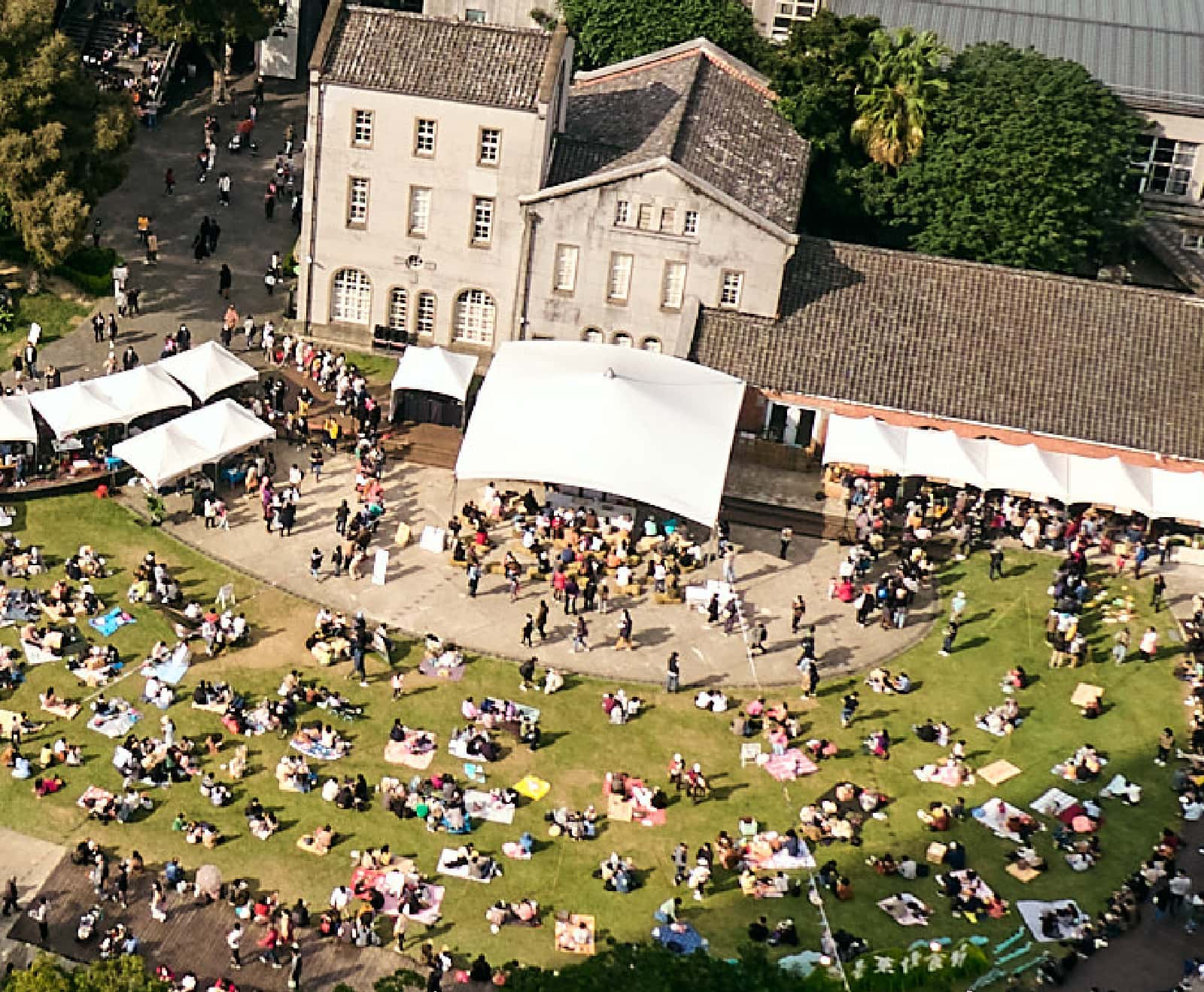 11 years later, Taitung not only has become recognized internationally for just following along an international trend, but also for being a role model, pioneering a successful adoption and application of a set of ideals unbeknown to its inhabitants; that is sure to be replicated by other local governments elsewhere. As with any good plan, it just took time, attention, and care. This success story couldn’t have been made possible without Yao’s creation of her Slow Economy and the sense direction and purpose it provided to the Taitung County Government Team. █ █ |
| © TAITUNG COUNTY GOVERNMENT 2023 |




